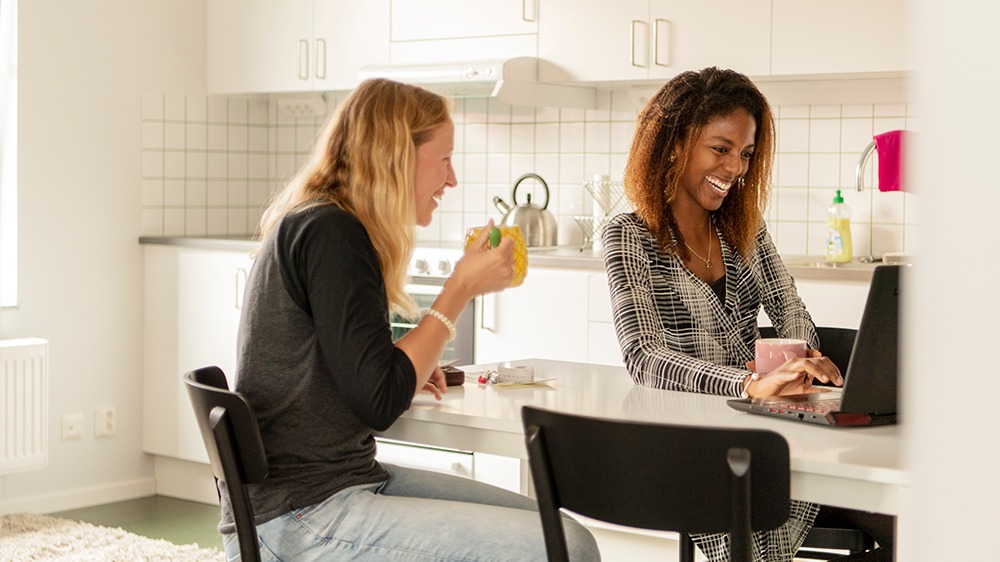Today, Akademiska Hus is releasing an interdisciplinary study on how the shared housing of the future should be designed to be as climate-smart and sustainable as possible. The study shows, among other things, that the climate footprint per person can be reduced by more than 50 percent when the homes are designed to share common areas such as kitchens and bathrooms.
It is together with, among others, HSB Living Lab and KTH Live-In Lab that Akademiska Hus has produced the study "Future shared housing: A report on sustainability in lifestyle and housing". A number of forms of housing for students, researchers and young adults around Sweden have examined several perspectives - economic and organizational conditions, housing and building design, as well as the residents' opportunity for a sustainable lifestyle.
- Coliving can strongly contribute to sustainable societal development, which is an important lesson for the construction and real estate sector where we need to greatly reduce our climate impact. The results from the study will form the basis for our future research collaborations and give us guidance when we design innovative and campus-based student housing that will partly contain shared areas. We also hope that the study can provide insights and concrete tools for more people in the real estate industry who wish to develop future shared living environments, says Susanne Malmgren, head of student housing at Akademiska Hus.
Halved climate footprint and increased quality of life
The study shows that the climate footprint per inhabitant can decrease by more than 50 percent in the construction phase if you plan for increased division. The key to the reduced footprint is that you share climate-intensive parts such as kitchens and bathrooms. Shared housing thus enables a more efficient floor plan and building design in comparison with individual housing. According to the study, it is also possible to have approximately 10-15 tonnes of carbon dioxide per capita as a guideline value when building new forms of shared housing.
In addition to pure climate benefits, Akademiska Hus' study shows that consciously efficient planning of the home's various surfaces and functions also enables sharing between several users and that the quality of life in the home can thus increase compared with an individual home. Areas shared with the entire accommodation should make up the largest percentage and preferably exceed 40 percent.
- Coliving provides opportunities for a more sustainable lifestyle. The more needs that the home can meet, the more the resident wants to stay in and use their home. Shared housing also leads to more social relationships. In this way, this type of housing can counteract the trend of loneliness and mental illness that we see mainly among young adults today, says Linda Teng, housing developer and innovation leader for sustainable urban and campus development at Akademiska Hus.
Other partners who have contributed to the study are Studentbostäder i Linköping AB, Nordic Choice Hotels, Chalmers, KTH, Zynka BIM, Tengbom, Arkitema, Semrén & Månsson and Grunditz Göransson architects.
